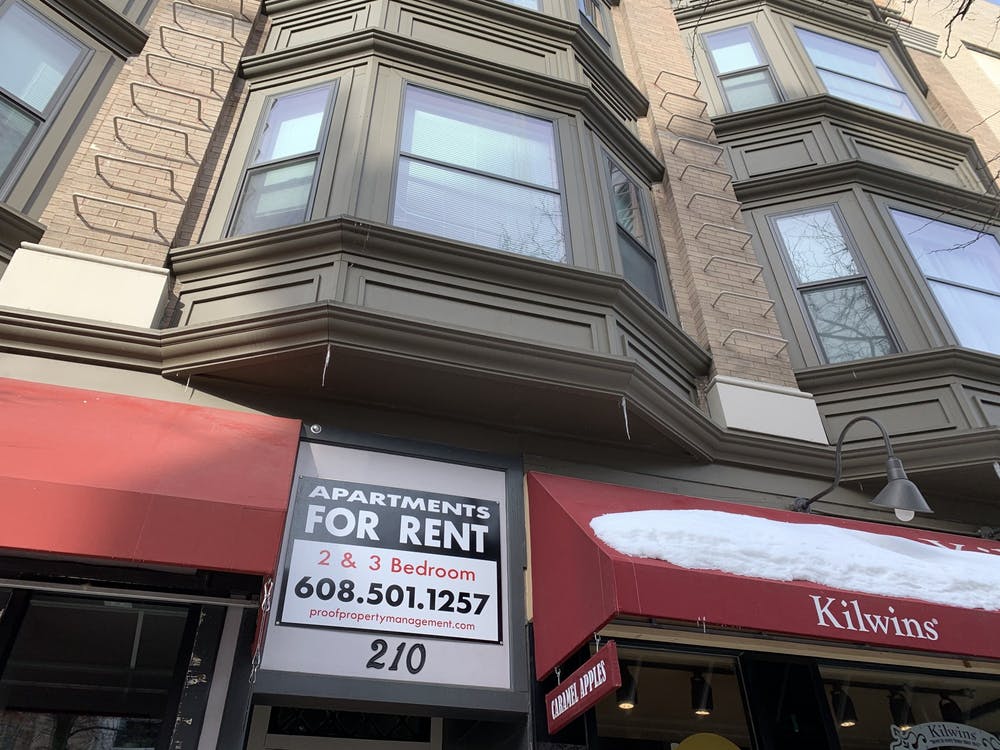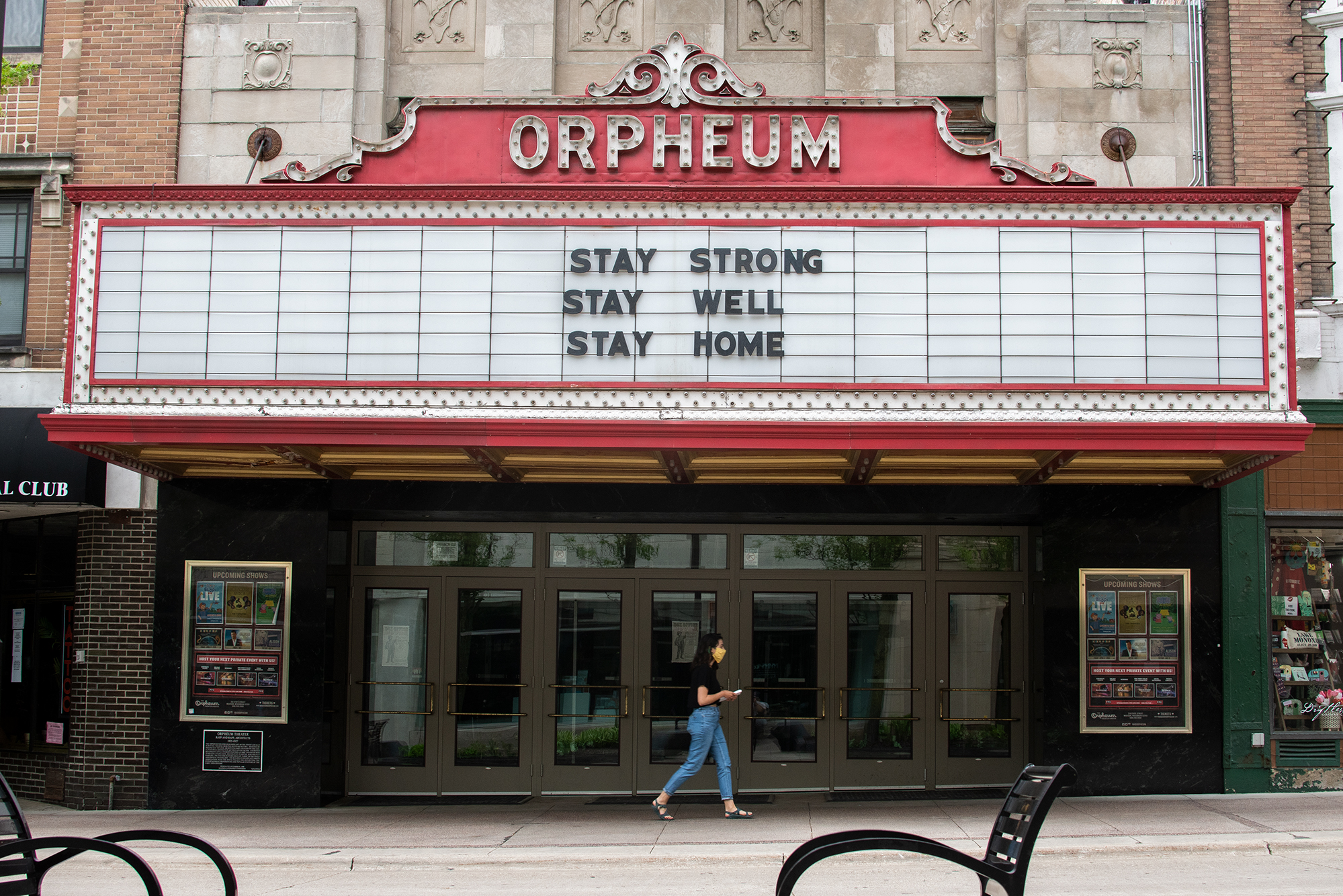
This article originally appeared in The Daily Cardinal on February 18, 2021.
As the COVID-19 pandemic enters its second year, students are struggling to pay rent, some without any federal support.
UW was allocated $29.78 million of federal funding through the U.S. Department of Education’s Higher Education Emergency Relief Fund (HEERF) on Jan. 13. On Feb. 15, UW automatically distributed $9.89 millionin direct aid to Pell Grant students. Changing restrictions from the federal government has led UW to distribute federal funds only to students who are federal financial aid eligible, the UW Financial Aid Office said.
Those who are not eligible to receive federal funding include international, DACA and undocumented students. UW has not specified how it will spend the remaining $20 million.
Housing insecurity is not a novel issue at UW, but as COVID-19 impacts people across the country, students at UW-Madison are being impacted in similar ways.
In the weeks leading up to the release of HEERF II funding, the office of financial aid was receiving around 25 requests per week. Less than 24 hours after the funding was released, students had made more than 600 requests, Director of Student Financial Aid Helen Faith said.
“The pandemic has put many more people at risk of eviction and that certainly includes students,” District 2 Supervisor and eviction defense lawyer Heidi Wegleitner said. “So while students may not have been a traditional client of mine, I have seen and represented more students here, because they needed help.”
According to Wegleitner, the ongoing nature of the pandemic and rent debt leave federal funds “woefully insufficient.”
“You don't realize how difficult [housing insecurity] can be until it happens to you,” BIPOC Coalition Co-Founder Tarah Stangler said. “The weight of thinking about college loans, and paying tuition and still being able to work while you're trying to support yourself and do school is really scary, and it's really isolating.”
Housing insecurity strips students of the time and energy that they need to prioritize their education and college experience. UW-Madison alumna Brooke Evans (‘17) struggled with housing insecurity before and during her time at UW and advised Sec. Castro’s 2020 presidential campaign on issues including higher education and homelessness.
“It’s really hard to focus on school,” Evans said. “You're spending so much time trying to survive and improve the environment that you're in.”
As a student who faced homelessness, Evans did not feel a sense of belonging, did not feel seen by the university and did not have access to the Wisconsin Experience like many of her peers.
“I started college just wanting to be normal,” Evans said. “I wanted to date, I wanted to have a long term relationship, I wanted to go to parties and have regular friends and it sounds trite, but I just wanted the opportunity to be boring.”
With so much time being spent trying to resolve her housing insecurity and receive aid, compounded with all of the emotional energy of the lived experience, Evans had little time to make friends, go to parties or even focus on classwork.
“Successful means that people aren't just performing in the classroom, but successful all around,” Evans said. “They're supposed to be able to access the [Wisconsin Experience], they should have access to things like sports events, and should be able to have hobbies, and spend time with friends, and be a part of organizations that do activism or politics. All of those things are part of the college experience.”
While HEERF II funding was allocated to over 4,000 students at UW, DACA, undocumented and international students were not included in that funding.
Students can submit Emergency Support Requests online, which Madison will evaluate on a “case-by-case” basis. Those who are not eligible for federal funding but qualify for emergency support will receive aid through private funding through the Office of Financial Aid.
“I don't want students to have to worry about whether they're qualified for federal funds because ultimately we want to be able to support all students regardless,” Faith said.
While UW-Madison has specified that it will give emergency aid to students regardless of eligibility, the university has not said how much of the remaining money will go to direct student aid.
“It's such a balancing act. We're trying to preserve programs, we're trying to avoid cuts, we’re trying to preserve the positions that we need to support students at the university, and we're also trying to respond to students' emergency needs,” Faith said. “That's a conversation that is really complex and requires us to balance a lot of priorities that ultimately all serve the same purpose.”
The pandemic is shining a light on the struggles of students with housing insecurity as the issue becomes more widespread. Whether the university will continue to promise their support after the pandemic ends is unclear.
“This problem, unfortunately, at this point is only getting worse and becoming more acutely visible. I don't see it receding into the shadows, the way that it was,” Evans said.
Evans has been involved with creating and advocating for ASM’s $2 million COVID Relief Fund. UW-Madison administration has concerns over the legality of distributing the funds, but ASM is pushing to distribute the money they can to students who need it and who may not qualify for federally funded financial aid.
“The idea behind the fund that we're creating is no strings attached to help cover the money that should have been given to the undocumented, DACA recipients and international students during that first round of HEERF funding that didn't because of the IFR rulings,” Stangler said. “We're all facing financial crises, and we need to make sure that money gets given to students that need it the most.”
Students can make an Emergency Support Request online through their MyUW Student Center.
The UW-Madison Emergency Student Support Fund is accepting donations to support students who are not eligible to receive federal funds.








